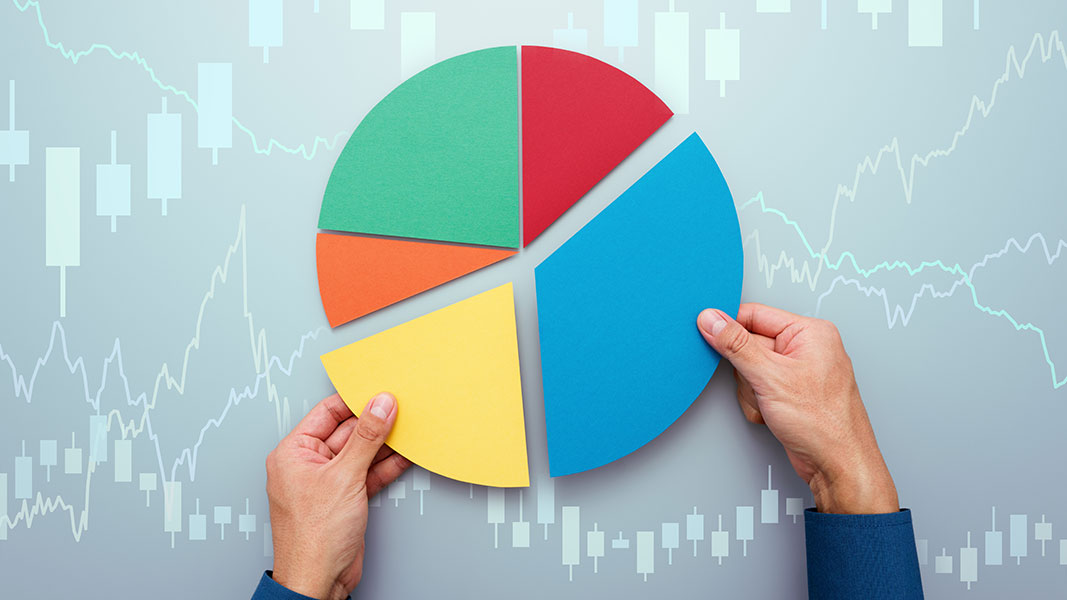If you are keen on passive investing but not keen on making risky investments (aka stock picking in the current environment of heightened volatility), then ETF stocks might be the perfect and safer vehicle to kickstart your passive investment journey. That’s because ETFs allow investors to buy large groups of shares through a single investment.
ETF for dummies: What is an ETF?
An ETF (Exchange Traded Fund) is a type of investment fund that trades on a stock exchange, just like a stock. However, an ETF is designed to track the performance of an underlying index or a basket of assets, while a stock represents ownership in a single company.
Think about it like this, instead of blindly picking one cookie flavour that you’ve never tried before with the possibility that it won’t taste as good as you’d hope it to be, why not pick a box of cookies with various flavours in it? That way, you’ll reduce the “risk” of not picking a yummy cookie. If one doesn’t taste great, you have other flavours for back up. Similar to investing in an ETF stock, if one thing goes down in value, there are other things in the basket that might back it up by going up in value, therefore spreading out the investing risk.
The trend for the ETF has been increasing in popularity in recent years as it offers investors a convenient way to gain exposure to a wide range of assets, including stocks, bonds, commodities, and real estate.
ETF stock can be a good way to invest money because they are usually cheaper than buying all the individual things separately, and they are easy to buy and sell on the stock market during the trading day.
ETF’s versus individual stocks
There are several reasons why investors may choose to invest in ETFs instead of individual stocks:
(1) Management: ETFs are typically passively managed, meaning that they aim to track the performance of an underlying index. Stocks, on the other hand, require active management and research to make informed investment decisions.
(2) Diversification: ETFs offer investors the ability to have a diversified portfolio across a wide range of assets, such as stocks, bonds, commodities, and currencies.
By investing in an ETF, investors are not bound to investing in individual stocks, instead, they can gain exposure to a broad market or sector. This can help spread out the investing risk. If one thing goes down in value, there are other things that might be going up in value.
(3) Lower costs: ETFs are usually cheaper than buying all the individual things separately. ETFs are designed to track an index, therefore having lower management costs. Additionally, ETFs can be traded like stocks, which means that investors can avoid the high fees associated with traditional mutual funds.
(4) Liquidity: ETFs are traded on exchanges like individual stocks, therefore are generally more liquid than mutual funds or other financial instruments. Investors can buy and sell ETFs quickly and efficiently, without having to worry about finding a buyer or seller.
(5) Transparency: ETFs are required to disclose their holdings on a regular basis, which means that investors can easily see what assets are included in the fund. This transparency can help investors make more informed investment decisions, and can also help prevent surprises if a particular stock or asset underperforms.
(6) Customisation: ETFs offer investors the ability to invest in specific sectors, regions, or themes, allowing them to tailor their portfolios to their specific investment objectives.
What are the important things to know when considering investment in an ETF?
Making an informed decision is the key in making any investment, and ETF is no exception. Investors should carefully research and evaluate the various underlying factors of their chosen ETFs. Here are some important things worth considering:
(1) Fund Objective: The first thing investors should consider is the fund’s objective. The objective will determine the type of assets the ETF invests in, as well as the investment strategy used to achieve its goals. Investors should make sure the fund’s objective aligns with their investment goals and risk tolerance.
(2) Expense Ratio: ETFs charge a management fee, known as an expense ratio, which covers the cost of managing the fund. It is highly recommended to compare expense ratios between different ETFs to find the best deal. Lower expense ratios are generally preferable as they can lead to higher returns over time.
(3) Holdings: ETFs are required to disclose their holdings, usually on a daily basis. Investors should review the fund’s holdings to ensure they are comfortable with the types of assets and companies the ETF is investing in. Investors should also look for any concentrated positions or risks in the holdings.
(4) Performance: Historical performance is not a guarantee of future results, but it can provide insight into how the ETF has performed in different market conditions. Investors should look at the ETF’s performance over different time periods and compare it to its benchmark and similar funds.
(5) Trading Volume: ETFs trade on exchanges like individual stocks, and their trading volume can impact their liquidity and bid-ask spreads. Investors should look for ETFs with sufficient trading volume to ensure they can buy and sell the fund easily without facing large bid-ask spreads.
(6) Tracking Error: ETFs aim to track the performance of a specific index or benchmark. However, due to management fees, trading costs, and other factors, the ETF’s performance may deviate slightly from the index. Investors should look for ETFs with low tracking error to ensure they are getting accurate exposure to the underlying assets.
Which investment vehicle is the most suitable for you?
In general, ETF stocks can be a good choice for investors seeking for passive investment, broad diversification and low fees, while individual stocks may be more suitable for investors who want to take a more active role in managing their investments and are comfortable with higher levels of risk.
ETFs are traded like stocks and their value can fluctuate, so it is strongly recommended to carefully consider your investment goals and risk tolerance before buying an ETF stock. Additionally, it’s always a good idea to consult with a financial advisor before making any investment decisions.
- IPO Watch: The Australian Wealth Advisory Group set for ASX entrance - December 15, 2023
- Harris Technology gears up for Christmas as consumer electronics and household tipped to be among most popular purchases - November 27, 2023
- Linius Technologies sprints into the US college sports with automated game highlight technology - November 23, 2023













Leave a Comment
You must be logged in to post a comment.